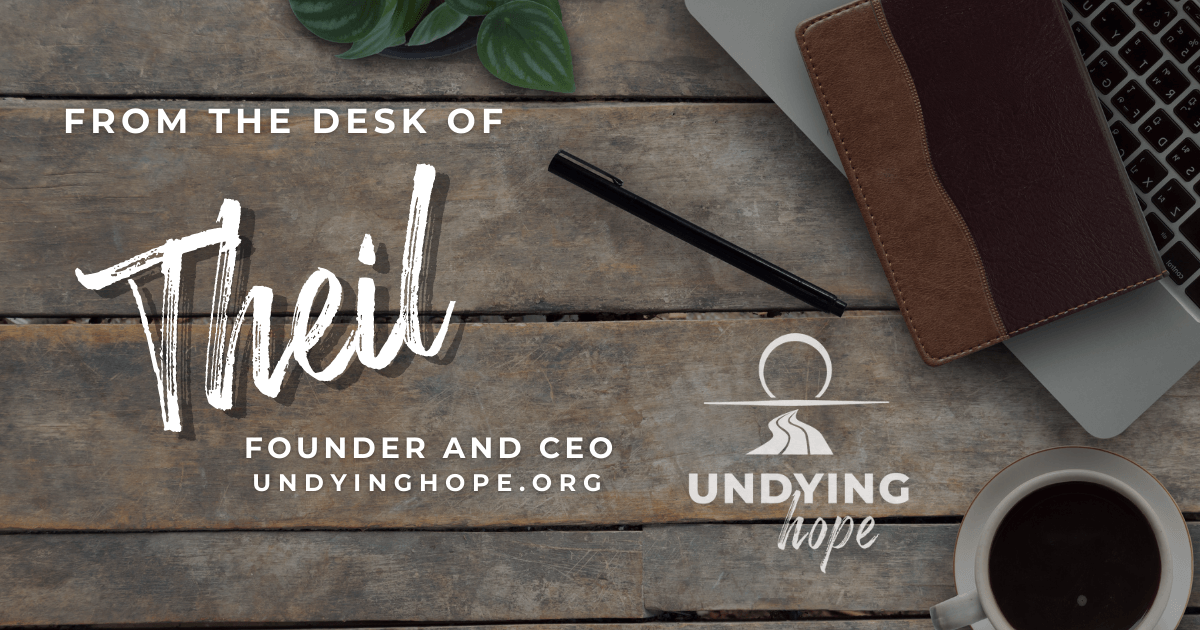From the Desk of Theil: United around Books and Beans
Tribalism is eroding the social fabric of South Sudan. Admittedly, tribalism is one of many problems South Sudan is grappling with, hindering development and prosperity. On my Facebook heading, I wrote, “Out of many tribes, one people, one nation, one South Sudan.” This phrase stemmed from my profound belief through experience that great things happen when people unite around something such as purpose, direction, or meal. By unity, I do not mean having the same ideology, philosophy, or conceptual thinking. Instead, I am referring to finding common ground where different schools of thought, beliefs, and cultures coexist peacefully and harmoniously.
Similarly, nowhere in my wildest dreams do I believe that uniting people from different backgrounds, tribes, and belief is a piece of cake, if you will. It is complicated, challenging, and labor-intensive. Harmony takes time, patience, perseverance, and persistence. Merriam-Webster dictionary defined unity as “the quality or state of being made one.” “Quality” and “Being” are keywords in this definition. “Being” suggests process. If the process of uniting people is done selflessly for the sake of the common good, quality would surely be the outcome. Put simply, quality and unity can undoubtedly transpire at a certain point along the spectrum of a well-designed and thought-out harmony and coexistence process. During this long journey, a paradigm shift occurs, the social fabric is stitched together healthily, tribalism gradually fades away, different ways of thinking emerge, and development comes to fruition.
To drive my point home, I emphasize the importance of unity by utilizing my experience at Managil boarding school. In retrospect, I was immersed deeply in a united tribe setting during three years of rich experience at Managil High School. Managil is located 150 miles south of Khartoum, the Republic of Sudan. After graduating from intermediate school (Middle school in the US), I was admitted to Managil High School. Managil High was a boarding school. At first, traveling to study in Managil province, which was very far from my family and Khartoum, I felt awkwardly scared since I had never been to Managil or knew anyone in that part of Sudan. Despite lingering negative thoughts in the back of my mind, I decided to go to Managil anyway.
Upon arrival, I noticed South Sudanese students at Managil High School were from different tribes and regions. I was cautiously excited to meet students from other tribes in Managil. As far as I can remember, I was perplexed and anxious. Negative thoughts lingered in the back of my mind, especially when I learned about the presence of two students from a region commonly perceived to eat people. I pondered. Wouldn’t they eat me if they got a chance? The overarching question in my mind was, “Theil, how will you practically spend three years with these people in this remote place called Managil?”

To make a long story short, three years at the boarding school was one of my life’s best experiences. It was an excellent opportunity to live, eat, and study with students from different tribes and backgrounds. We read many books beyond the required school textbooks. Because beans were affordable and readily available in Managil, it’s what we ate daily and in most meals. We, students, ate beans passionately and in a brotherly and camaraderie spirit and deep joy. We used to study together individually and collectively. Some of us participated in sports and school-wide activities such as arts, comedy, and sports. On Saturdays, we hand wash our clothes and lay them out to dry in the Sun. On Sunday, we pray at the local church and often train the choir with new songs we learned in Khartoum and take to Managil. Muslim students often accompany us to church but habitually pray in the mosque on Fridays.
During this journey, a paradigm shift occurred. People eating other people turned out to be a myth. I am here now, which means the student I was afraid of did not eat me alive. Most importantly, a sense of unity became strong in all of us. We ended up seeing one another, not as students from different tribes but from one big tribe called South Sudan. The idea of “Out of many tribes, one people, one nation, one South Sudan” is well and alive in my colleagues and me. We remain friends and brothers to this date.
My experience at Managil High School made me who I have become. I no longer see tribes, but brothers and sisters created by God with inalienable rights. The people of South Sudan deserve unity, peace, and prosperity. South Sudan, home to 64 tribes and a population of over 11 million, can coexist in peace and harmony by uniting itself around a common purpose and direction. The people of South Sudan need to embrace unity by paying allegiance to the country and flag, get unstuck from the cycle of extreme poverty by investing in education, and thrive by applying sustainable development mechanisms. South Sudan has the chance to unleash potential and unlock creativity through education and other developmental means.
Final Thoughts: Undying Hope International exists to provide hope and opportunity in South Sudan and “beyond” through education. Due to its importance, unity is one of Undying Hope’s core values, and education is the heartbeat that keeps Undying Hope operating. My wife and I dream of a boarding school serving beans and books like Managil high school. Such an immersing education method has the potential and likelihood of uniting students from different tribes and building future generations of leaders for South Sudan and beyond. Will you join me in making this dream a reality?
Cordially,
Theil T. Theil
President and Co-founder
Undying Hope International, Inc.
South Sudan & Beyond


